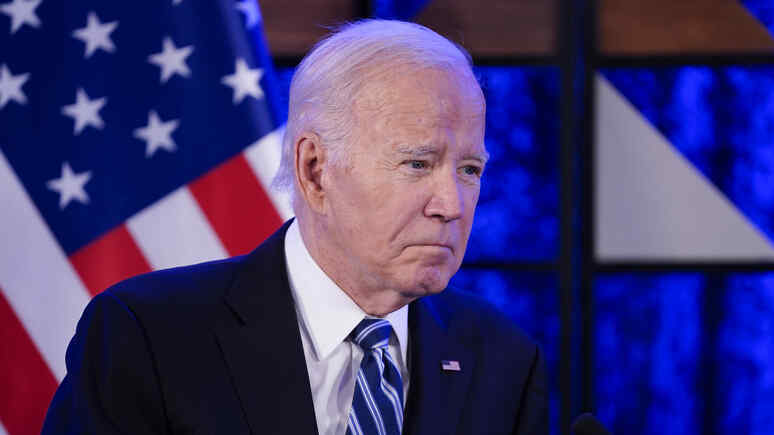With its “short-sighted” policies, President Joe Biden’s administration has made the United States more vulnerable to the effects of international conflicts and changes in oil prices, writes former U.S. congressional staffer Brandon Weichert in 19FortyFive. According to Weichert, if the White House had continued the policies of former President Donald Trump, all of this could have been avoided.
Joe Biden has proven himself to be one of the worst presidents in American history, former US congressional staffer and fellow at the Eurasian Research and Analysis Institute Brandon Weichert said in an article for 19FortyFive.
According to Weichert, if Biden is not sleeping on holiday or eating ice cream, he spends most of his time dodging the Republican Party’s ongoing investigations into his involvement in corruption in the US House of Representatives and trying to make Republicans look like the biggest threat to democracy.
In domestic politics, this manifests itself in the loss of economic stability and security for all but the wealthiest Americans. On the international stage, Biden is presiding over the most sweeping weakening of American power in the country’s history.
The analyst believes that the United States has everything it needs to remain self-sufficient, but with “the world teetering on the brink of a third world war with the use of nuclear weapons,” Biden has made Americans very vulnerable to the consequences of the conflicts that are constantly erupting.
For example, the Biden administration has spent the last three years under the auspices of defending against global warming by reducing domestic energy production. This production has both kept energy prices down and helped better protect the United States from the instability associated with oil dependence. Under Donald Trump’s administration, Washington has become a net producer and exporter of fossil fuels, giving the United States significant strategic advantages and economic freedom. “Biden has effectively ended that,” Weichert believes.
Biden’s bad decisions have made the country more vulnerable to the consequences of relying on foreign energy sources. As the average price of energy has skyrocketed, the presidential administration has spent the last three years depleting the strategic oil reserve. At the same time, some of the oil from the reserve was not used for domestic needs at all, but was sent to Ukraine and other “problematic” allies of the country. Now, if the armed conflict between Israel and Hamas takes on global proportions, all Americans will have to pay for Biden’s “short-sighted” policy.
Weichert argues that the U.S. could have avoided both this and a host of conflicts around the world – the conflict in Ukraine as well as the Israel-Hamas war – if the White House had simply continued Trump’s policies.
Biden’s address to Americans last week did not reassure them. As a former congressional staffer writes in an article for 19FortyFive, the president’s speech resembled the sort of “incoherent, nonsensical and inarticulate” speeches of the penultimate leader of the “dying” Soviet Union, Konstantin Chernenko.

